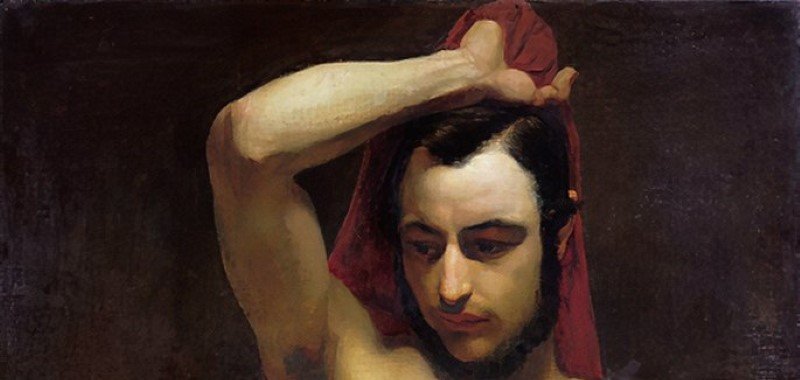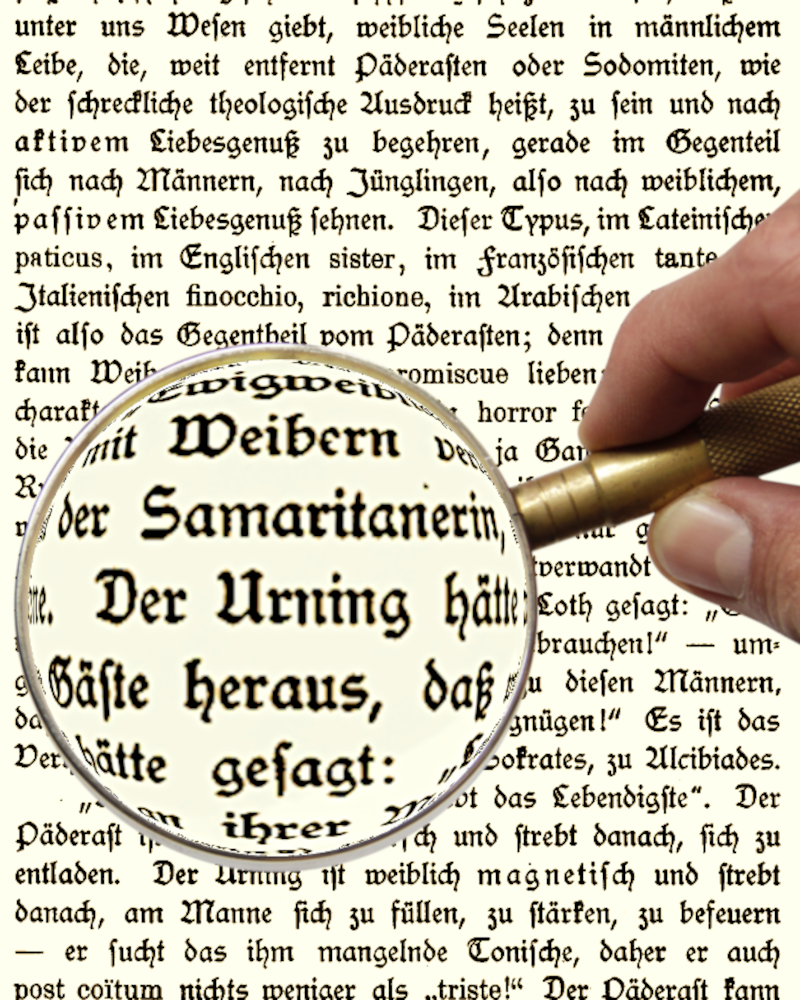
What’s in a name?
The word ‘urning’ was created from a root derived from Pausanias’s speech in Plato’s Symposium. Pausanias pointed out that there were two origin myths for Aphrodite, the goddess of love:
In one, Aphrodite was born through an earthly sexual encounter between the god Zeus and the water-nymph Dione and was emblematic of common or earthly procreative love.
In the other, Aphrodite was born from the testicles of the god Uranos, that had been cast onto the ocean after the titan Cronos castrated him with a sickle, and was emblematic of celestial, heavenly same sex love.
By taking the root ‘Ur’ from the celestial Aphrodite in Pausanias’s speech and combining it with the German ending ‘ning’ you get the masculine word ‘Urning’ used in German in the 19th century to describe men who were sexually attracted to their own sex.
By extension, the word for men attracted to their opposite sex was Dioning (‘Dio’ plus ‘ning’) and the word for lesbian was Urnind (‘Ur’ plus the feminine German ending ‘nind’).
In French, the word urning becomes uraniste and was a self-description used by some same sex attracted men in the late 19th century.
In English, the word urning was translated as uranian and was used for a short period in the 1890s after John Addington Symonds introduced the word into English.
